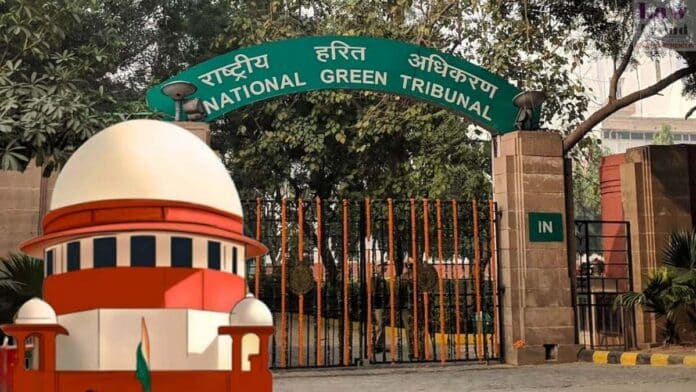The Supreme Court on Friday questioned the Rajasthan government for allowing the state’s industrial development body to challenge an order of the National Green Tribunal (NGT) that sought to clean the heavily polluted Jojari river.
A bench of Justices Vikram Nath and Sandeep Mehta asked why the Rajasthan State Industrial Development and Investment Corporation Ltd (RIICO) was opposing directions issued to curb river pollution. “Why is RIICO in appeal? These are directions to clear the pollution and RIICO wants to oppose that,” the bench remarked while hearing a suo motu case concerning contamination in the Jojari river.
The court also directed the state to clarify whether RIICO, along with Municipal Council Pali, Municipal Council Balotra, and Nagar Nigam Jodhpur, wished to continue with their respective appeals against the NGT’s February 2022 order passed in a case related to pollution in the Luni, Bandi, and Jojari rivers.
Rajasthan’s counsel informed the bench that the NGT had imposed an environmental compensation of ₹2 crore on RIICO, and sought a week’s time to file a proposed action plan along with the latest status report on the issue. Granting time, the bench recorded in its order that the counsel has been permitted to “obtain instructions in the matter in particular about the fact whether RIICO and Municipal Council Pali, Nagar Nigam Jodhpur and Municipal Council Balotra still want to continue with their civil appeals.” The case will next be heard on November 17.
The state government was also allowed to file a fresh status report, as its counsel submitted that several developments had taken place since the 2022 NGT order.
The apex court had earlier directed that all pending appeals against the NGT’s order be heard along with the suo motu matter titled “In Re: 2 million lives at risk, contamination in Jojari river, Rajasthan.” On September 16, the court had taken cognisance of the discharge of industrial effluents — mainly from textile and allied units — into the river, which it said had affected hundreds of villages and rendered drinking water unsafe for both humans and animals, disturbing the local ecosystem.




